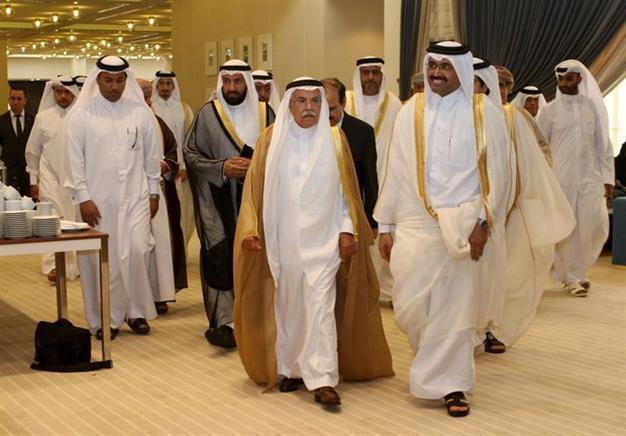IMF: Gulf should adjust to new oil price ‘reality’
DUBAI - Agence France-Presse

REUTERS photo
Gulf economies need to adjust to the “new reality” of oil prices expected to remain low for some time, the International Monetary Fund (IMF) said, recommending spending cuts and income diversification.
But the oil-rich monarchies remain in a strong position to make the necessary adjustments thanks to the large financial reserves they have built up during years of firmer prices, according to the IMF’s regional outlook published on Oct. 21.
“Not only this year, but for the years to come, these countries will need to make an adjustment to better balance their spending to the new reality of the oil prices,” said IMF Middle East and Central Asia chief Masood Ahmed.
The budgets of Gulf Cooperation Council members Bahrain, Kuwait, Oman, Qatar, Saudi Arabia and the United Arab Emirates are facing an average deficit this year of 13 percent of gross domestic product (GDP), Ahmed told AFP in an interview.
Their combined budget deficit over the next five years will exceed $1 trillion, he said, as oil prices have plunged to about $50 a barrel from about $115 in June 2014, pressured by oversupply and weak demand.
The IMF report said oil exporters in the Middle East and North Africa -- which besides GCC countries include Iran, Iraq, Libya, Algeria and Yemen -- will lose around $360 billion in oil revenues this year.
Oil prices will average $51.6 a barrel this year and $50.4 a barrel in 2016, before rising to $63 a barrel in 2020, the IMF predicted.
“Most people today believe that oil prices may come up a little bit from where they are today... By 2020, we are expecting to see oil prices in the low and mid 60s rather than the numbers they were used to,” said Ahmed.
“That means that most of these countries will need to undertake a process of sizeable and sustained adjustment on the fiscal side.”
Those adjustments should include finding ways to cut public spending and diversify income away from oil, said Ahmed, pointing mainly at the need to cut subsidies and reduce the public sector wage bill.
“Most nationals of the GCC countries work in the public sector, and that’s a model that has to change over the next few years,” he said.
The IMF expects economic growth in the GCC to slow to 3.25 percent this year and to 2.75 percent in 2016, from 3.5 percent in 2014.
Ahmed applauded a recent move by the UAE to lift subsidies on fuel as a “good example” for other GCC countries.
Most GCC countries are in a strong position to adjust to the new reality of the oil market, thanks to their hefty financial reserves.
